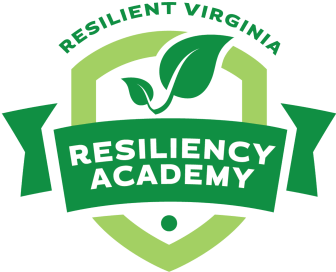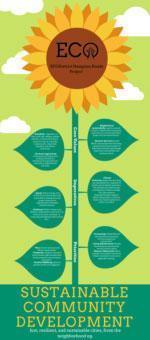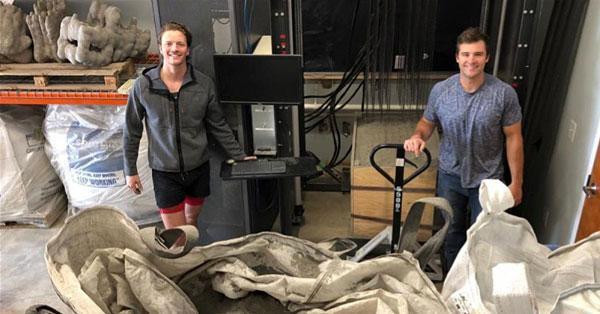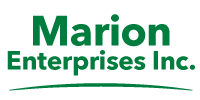Resilient Virginia News
- Announcing the Fall Resilient Academy Webinar Series
- Annual Meeting Recap
- Annette Osso Receives Award
State and Local News
National News
Funding Resources
 What’s New
What’s New
Announcing the Fall Resilient Academy Webinar Series
An Introduction to Four Resiliency Planning Guides
Resilient Virginia’s Fall 2020 Resiliency Academy features a series of four webinars that highlight some of the best resiliency planning tools available to help communities build the capacity to maintain critical functionality and vitality in the face of severe disturbances and chronic stressors.
The need for overarching and inclusive resiliency plans that integrate health, social, and economic concerns with ever-increasing climate changes has been highlighted by the current COVID pandemic’s impact on communities. This widespread health disaster has brought into sharp relief the problems of families and communities that are faced with a severe economic downturn, disruption of school and social services, food and housing insecurity, and a re-definition of “essential services” as everyone struggles with ongoing challenges.
September 23 • 1:00–2:30 PM
U.S. Climate Resilience Toolkit
David Herring, Director of Communication & Education at the National Oceanic and Atmospheric Administration’s (NOAA) Climate Program Office, will demonstrate the U.S. Climate Resilience Toolkit. This toolkit is a robust website of resources designed to help people find and use tools, information, and subject matter expertise to build climate resilience. It was developed as an inter-Agency initiative that operates under the auspices of the United States Global Change Research Program. The site is managed by NOAA’s Climate Program Office and is hosted by NOAA’s National Centers for Environmental Information. You can find out more about this extensive toolkit that includes a data site that projects climate changes down to the county level, steps involved in resiliency planning, and case studies here.
October 7 • 1:00–2:30 PM
Climate Ready Communities
Tonya Graham, the Executive Director of the Geos Institute, will guide you through their Climate Ready Communities program. The program is a “Do-It-Yourself” approach for local governments that features a Practical Guide to Building Climate Resilience, a support package for using the guide, and other supplemental services. The Guide takes a community through steps of identifying risks and challenges, including social and economic stressors, as well as environmental, climate, and natural disaster risks, with the goal of setting priorities for actions to address these challenges. This field-tested guide, which is provided at no cost and is especially useful to medium-size and smaller communities, can be previewed here.
October 21 • 1:00–2:30 PM
Community Resilience Planning Guide for Buildings and Infrastructure
Chris Clavin, Research Environmental Engineer at the National Institute of Standards and Technology’s (NIST) Community Resilience Group, will present their Community Resilience Planning Guide. This guide was developed with local and state resiliency officials and provides a two-volume set of guidance and practice materials. It not only provides direction on how to plan for and implement measures to improve community resilience in response to disasters, it also introduces science-based tools to measure resilience and to evaluate strategies to achieve it based on economic analysis. You will also hear how the NIST guide has been used in communities across the country. Find out more about this guide here.
November 10 • 1:00–2:30 PM
Resilient Rural America Project
Gwen Griffith, Program Director with the Model Forest Policy Program (MFPP), and Ned Gardiner, NOAA’s Climate Visualization Project Manager, will present the Resilient Rural America Project training. RRAP consists of no-cost online modules to guide rural leaders and consultants through a process of risk assessment, identification of resilience strategies, and taking action. It focuses on helping communities become more resilient to extreme weather and changing climate conditions. Resilient Rural America Project empowers rural leaders by sharing practical resilience action strategies and strengthening the capacity of rural communities and experts to work together. More information on the series of self-guided Training Modules that take rural leaders and consultants through a planning process can be seen here.
Register today to reserve your seat at our first webinar on September 23rd.
If your company provides resiliency related products or services, consider signing up as a Fall Resiliency Academy Sponsor here. Your company will receive recognition throughout the Fall series as well as additional benefits. Questions about sponsorship? Contact Annette Osso, Managing Director, osso@resilientvirginia.org.

Resilient Virginia’s August 2020 Annual Meeting Recap
Resilient Virginia’s first virtually held Annual Meeting was a great success, with sold-out registration, an opportunity to meet our involved and experienced Board of Directors, and guest speakers who illuminated state-level programs in Virginia as well as an economic analysis for supporting resiliency recovery as states go forward to rebuild while faced with the on-going pandemic. Our guest speakers were:
- Ann C. Phillips, Rear Admiral, U.S. Navy (Ret.), Special Assistant to Governor Northam for Coastal Adaptation and Protection;
- Sable K. Nelson Dyer, JD, Acting Director, Office of Health Equity, Virginia Department of Health; and
- Jonah Kurman-Faber, Senior Research Associate, Climate XChange
here, and a video recording of the event below and on Resilient Virginia’s YouTube Channel.
Annette Osso, Resilient Virginia’s Managing Director, Receives Award
 We are pleased to let you know that Annette Osso received the Visionary Award from Viridiant (formerly EarthCraft Virginia) on September 3, 2020 at their annual Building Sustainability Conference. This award reflects the 25 years of work that Annette has done in the state to promote sustainability and resilience, and is especially relevant to the major role she played in bringing EarthCraft, a voluntary Green Builder program for residential builders, into the state.
We are pleased to let you know that Annette Osso received the Visionary Award from Viridiant (formerly EarthCraft Virginia) on September 3, 2020 at their annual Building Sustainability Conference. This award reflects the 25 years of work that Annette has done in the state to promote sustainability and resilience, and is especially relevant to the major role she played in bringing EarthCraft, a voluntary Green Builder program for residential builders, into the state.
State and Local News
Local Resiliency Actions Around the State
Resiliency Topic: Emergency Preparedness
Roanoke and Nearby Communities Host Virtual PrepareAthon
For the third year in a row, the city of Roanoke, along with Roanoke County and the town of Vinton, are hosting a PrepareAthon event. But this year it will be an all-virtual event, in conjunction with their media partner WDBJ7, that will feature online stories, trainings, and webinars on flood awareness and emergency preparedness.
September is National Emergency Preparedness Month and PrepareAthon is a national event sponsored by the Federal Emergency Management Agency (FEMA). These events, usually hosted as community gatherings around the country, encourage people and communities to take action to prepare and protect themselves against disasters. The goals of the event are:
- for people to understand which disasters could affect their community,
- know what to do to stay safe,
- take action to increase preparedness, and
- improve their ability to recover from a disaster.
This year’s theme is “Disasters don’t plan, but you can!”
Join in virtually throughout the month of September to take an active role in protecting yourself, your loved ones, and community. Listen to presentations and ask questions of local floodplain experts, watch videos, and connect with other online resources and preparedness tools.
Here’s a link to Roanoke’s video about their event: https://youtu.be/zQPVUiGTH8M.
Or go to https://www.roanokeva.gov/2522/Get-Prepared—Roanokes-Prepareathon to find out about their weekly events.
Information provided by Danielle DeHart, CFM, Environmental Specialist, City of Roanoke Stormwater Division, danielle.dehart@roanokeva.gov.
* * * * * *
Resiliency Topic: Resilient Recovery
Roanoke’s Star City Recovery Fund Opens for Applications
On August 26, Roanoke City Mayor Sherman Lea delivered the 2020 State of the City, reporting on the progress of the Star City Strong Recovery Fund Task Force. The Task Force was formed in June as part of the City’s overall approach to dealing with the COVID-19 crisis in three stages — Response, Recovery, and Resiliency. It was charged with making recommendations to Roanoke City Council on how to disburse over $18 million in Recovery Fund monies drawn from General Fund, Community Development Block Grants, and CARES Act funding.
Comprised of citizen and staff working groups and an Economic Advisory Panel, the Task Force convened virtual Community Conversations with stakeholders from healthcare agencies, businesses, faith-based organizations, hospitality, and nonprofits and produced a report of recommendations based on that input.
Recovery funds are currently available to qualifying individuals, businesses, and non-profits for certain COVID-19 related expenses. The City began accepting applications for funding on August 17 and will begin reviewing applications on September 1. Eligibility requirements, application deadlines and more information can be found on the Star City Strong Recovery Funds website.
* * * * * *
Resiliency Topic: Energy Security
Central Virginia Electric Coop to Install Battery Facility
 Rappahannock Electric Cooperative (REC) and Charlottesville-based East Point Energy, a leading energy storage project developer, have announced commencement of the first grid-scale energy storage project by a Virginia electric cooperative.
Rappahannock Electric Cooperative (REC) and Charlottesville-based East Point Energy, a leading energy storage project developer, have announced commencement of the first grid-scale energy storage project by a Virginia electric cooperative.
The project will be located in Spotsylvania County and will provide multiple values to the grid, including:
- Providing resiliency to REC member-owners by temporarily providing electricity at times when the transmission system fails and the substation and the members served by it would otherwise be without power.
- Managing wholesale power costs by dispatching stored energy during peak times when electricity is more expensive for the Cooperative to purchase.
- Delaying the need for substation upgrades.
All of these uses help REC provide its member-owners more resilient, sustainable, and affordable energy. Additionally, REC will use this project to learn how additional energy storage projects can be deployed on its system in the future.
“With more and more renewable energy on our system and with battery costs declining rapidly, energy storage is now a critical tool for our team as we work to connect our member-owners and communities with safe, reliable, affordable, and sustainable energy solutions,” said John D. Hewa, president and CEO of REC, who also serves as chairman of the board for the U.S. Energy Storage Association.
Given the state’s newly enacted goal of moving toward a carbon-free grid by 2050, this installation is a good first step for REC to learn more about how battery systems will integrate into the grid.
Source: REC’s August 18, 2020 Press Release.
* * * * * *
Resiliency Topic: Health and Equity
Hampton Roads Organization Takes on Resilience Hub Initiative
 The Center for Sustainable Communities (CSC) is a nonprofit organization that dedicates itself to helping communities to be more sustainable and resilient through an environmentally just and racial-equity lens. CSC has designated the Cavalier Manor neighborhood in the City of Portsmouth, Virginia as an ECODistrict and they intend on bringing resiliency projects to this community and surrounding areas. Some of their projects include Energy for All, a Sustainable Jobs Hub, and establishing a Resilience Hub. Through the Energy for All Initiative they plan to bring energy efficiency and solar systems to these low-income neighborhoods, while the Jobs Hub will seek to set up a training center for sustainable jobs.
The Center for Sustainable Communities (CSC) is a nonprofit organization that dedicates itself to helping communities to be more sustainable and resilient through an environmentally just and racial-equity lens. CSC has designated the Cavalier Manor neighborhood in the City of Portsmouth, Virginia as an ECODistrict and they intend on bringing resiliency projects to this community and surrounding areas. Some of their projects include Energy for All, a Sustainable Jobs Hub, and establishing a Resilience Hub. Through the Energy for All Initiative they plan to bring energy efficiency and solar systems to these low-income neighborhoods, while the Jobs Hub will seek to set up a training center for sustainable jobs.
The Center for Sustainable Communities has seen the need for a Resilience Hub to be set up in the community, with the intention of providing food, shelter, and resources in times of climate disasters or other stressful situations. They are taking a Mutual Aid program approach especially oriented toward dealing with heat waves as well as extreme weather events.
The CSC will initially assess community members’ living situation and determine if the family requires evacuation and/or alternative shelter. They intend to activate a strategy that includes providing trusted weather advisory information from reliable partners like the National Weather Service, and partnering with skilled volunteers, local HVAC contractors, and service providers to work on pro-bono or reduced costs of service and repair to homes. The also seek to partner with nonprofits or churches in the area that provide low- or no-cost support services, temporary shelter, and supplemental support to offset repair costs.
To learn more about the Center for Sustainable Communities initiatives, you can contact Kanisha Ahmed, Associate Director, or Garry Harris, the Founder and President.
Contact email: edhamptonroads@gmail.com. Facebook: ecodistricthamptonroads
* * * * * *
Resiliency Topic: Economic Innovation
Norfolk’s RISE Resilience Innovations Accelerator
This summer, RISE announced its second round of winners of the Coastal Community Resilience Challenge. Five companies, which piloted solutions for coastal communities subject to increased flooding, are examples of small businesses whose products or services are ready to be scaled up to meet local challenges.
The companies involved with the Challenge this year are listed below.

Natrx: This company uses specialized 3D printers to craft custom “exo-structures” from materials like biopolymers: natural material that is either produced organically by living organisms or synthetically from renewable resources. Natrx produces these structures in conjunction with local ecologists and engineers and installs them along waterfronts to preserve infrastructure by mitigating erosion while also providing a habitat for natural growth.
Re:Public: This company helps non-mapping professionals track real-time flood risks.
StormSensor: This business builds stormwater monitoring products.
Virginia PACE Authority: This organization provides a financing solution to provide capital related to flood mitigation and other resilience improvements.
WeatherCheck: This business uses AI to monitor properties for weather-related damage and loss in order to both speed up the claims process and improve the future of risk analysis.
Paul Robinson, the Executive Director, describes RISE as an economic development organization that helps ramp up innovative new businesses by providing revenue-based funding, business mentorship, and access to data, experts, and demo sites along the Hampton Roads coast. He further states, “What we’ve been building here is a way to identify resilience problems and see if there is a market for [solutions] here and elsewhere. We pick [challenge winners] based on economic viability.” RISE is moving ahead to add another five companies to the accelerator this summer through their Urban Mobility Challenge that focuses on apps that offer real-time flooding solutions.
Source: “Bringing Coastal Resilience Innovation to Hampton Roads,” June 10, 2020, https://nextcity.org
National News
New Congressional Reports Highlight Economic, Social, and Environmental Opportunities Through Climate Resilience
By Tracy Garland, Events and Social Media Director, Resilient Virginia
The U.S. House of Representatives
Earlier this summer, the U.S. House of Representatives Select Committee on the Climate Crisis rolled out a formative plan entitled Solving the Climate Crisis: The Congressional Action Plan for a Clean Energy Economy and a Healthy, Resilient, and Just America. The sweeping, 538-page majority staff report provides a legislative roadmap of climate solutions that Congress should enact to improve the economic, environmental, and social resilience of the nation. The guiding principle of the plan is to build a durable and equitable clean energy economy that tackles the climate crisis while creating renewable energy jobs, advancing environmental justice, improving health, protecting the nation’s land and waters, and enhancing community and agricultural resilience.
The plan calls for a transition to 100 percent clean energy by 2040 and puts the U.S. on track to achieve net-zero emissions by 2050. It also details actionable steps in nearly every sector of the economy that could save more than 60,000 American lives from the harmful effects of air pollution every year through 2050, while saving nearly $8 trillion through 2050 in health and climate benefits.
The plan highlights resiliency initiatives in several of its top tier key pillars and throughout the document. These include investing in infrastructure to build a just, equitable, and resilient clean energy economy; improving public health by creating resilient supply chains and hospitals; and making U.S. communities more resilient to the impacts of climate change through leadership development, risk reduction, and recovery planning.
The Select Committee is bipartisan in makeup. Virginia is represented by two Congressmen, Donald McEachin (D) VA-4 and Morgan Griffith (R) VA-9.
The full staff report, along with summaries, a fact sheet, and a press release can be found here.
The U.S. Senate
On August 25, the Senate Democrats Special Committee on the Climate Crisis released “The Case for Climate Action: Building a Clean Economy for the American People.” This 200+ page report calls on Congress to initiate actions that will reduce U.S. emissions to achieve net-zero emissions by 2050; grow the economy through federal spending on climate action of at least 2% annual GDP, with at least 40% invested in communities of color and low-income and otherwise disadvantaged communities; and create 10 million new high-paying jobs.
The report calls for implementing federal clean energy and emission standards, carbon pricing, and other market mechanisms to reach the stated clean energy goals. Like the House report, it also leans heavily into the concept of resilience, to include investments in more resilient electrical grids, buildings and infrastructure, supply chains, agricultural systems, transportation networks, and financial institutions.
The full report, press release, and list of supporters can be found here.
Proposed Federal Legislation Supports Resiliency
By Tracy Garland, Events and Social Media Director, Resilient Virginia
Several of the members of the U.S. House of Representatives Select Committee on the Climate Crisis have introduced legislation that reflects aspects of the issues addressed in the Committee Report. Some of these bills are listed here:
The Growing Climate Solutions Act of 2020, H.R. 7393 — Introduced by U.S. Representative Abigail Spanberger (D-VA) with U.S. Representative Don Bacon (R-NEB) and seven others. The bipartisan bill is a companion to the Senate version, which was recently introduced by Senators Braun, Stabenow, Graham, and Whitehouse. It will provide the incentive for farmers, foresters, and ranchers to engage in sustainable practices by helping them access the carbon credit markets, monetizing the emissions they reduce and the carbon they sequester.
Healthy Soils, Resilient Farmers Act — Introduced by U.S. Representative Abigail Spanberger (D-VA), who chairs the Conservation and Forestry Subcommittee of the House Agriculture Committee. The Act would authorize the Farm Services Agency to expand its conservation loans by establishing a new Soil Health Transition Loan Program designed for family farmers seeking to adopt best practices in cover cropping, crop rotation, advanced grazing management, and organic production. This bill complements the Agriculture Resilience Act discussed below.
Agriculture Resilience Act, H.R. 5861 — Introduced by U.S. Representative Chellie Pingree (D-ME), this Act is a comprehensive proposal to help producers meet the challenges of climate disruption and bring the nation’s net agricultural and food system greenhouse gas (GHG) emissions to zero by 2040. The Act would support increased funding for more sustainable farming practices, including increasing soil health and promoting advanced grazing management practices, along with supporting programs to reduce food waste by 75%.
Efficient Vehicle Leadership Act — Introduced by U.S. Representative Sean Casten (D-IL), this legislation would combat the climate crisis by reducing transportation emissions and save Americans money by creating a financial incentive for consumers to purchase more fuel-efficient vehicles. In 2018 the transportation sector was the largest single source of emissions in the United States, responsible for 1.9 billion tons of CO2 equivalent entering the atmosphere.
Funding Resources
VDEM Announces Application Period Open for Hazard Mitigation Assistance Grants
VDEM announced at the end of August that it is opening the application period for the 2020 Building Resilient Infrastructure in Communities (BRIC) and Flood Mitigation Assistance (MA) grant programs. These nationally competitive programs have allocated $500 Million and $160 million, respectively, for the FY 2020 grants.
The FMA grants will fund flood mitigation projects using criteria similar to past year’s programs. BRIC is a new program that replaces the Pre-Disaster Mitigation grant program. BRIC’s goal is to expand mitigation to have more community-wide impact that includes infrastructure protection for homes, businesses, and public infrastructure. It also allows for funding green infrastructure projects and acquisition of microgrids or other supplemental energy sources for critical facilities, wind retrofit and safe rooms, wildfire mitigation, and drought/aquifer storage.
Critical deadlines:
- Pre-Applications/Applications due to VDEM: November 8, 2020 at 5:00 pm EST
- Peer review process: December 2020
- Applications due to FEMA: January 29, 2021
Assistance with Pre-Applications or Applications can be obtained by contacting the Regional VDEM grant administrators.
You can find additional information on the HMA application by viewing the VDEM webinar presentation on the process here.
GO Virginia’s Economic Resilience and Recovery Program
In mid-summer, the GO Virginia Board approved a policy to implement the Economic Resilience and Recovery Program with up to $14.66 million in GO Virginia funds. Each GO Virginia regional council may apply for up to $1 million to support strategic initiatives in response to the economic conditions caused by the COVID-19 pandemic. In addition, the GO Virginia Board approved flexible policy changes to accelerate the deployment of funding. Applications are accepted through the nine GO Virginia Regional Councils. For more information on this program, click here.
Resilience Events Calendar
Check out the many webinars, conferences, and community meetings that are happening online this Fall.
Make sure to:
- Register for Resilient Virginia’s Resiliency Academy webinars, starting September 23.
- Check out the Cities Rising Summit, a multi-week event (September 15–October 30) with a wide range of resiliency topics and speakers, organized by the Tom Tom Foundation.
- Check our Resilient Events Calendar on a regular basis to find out what is happening in Virginia and around the nation.
- Give a special look to our regional partners — Leaders in Energy and USGBC Virginia — who have transitioned to all virtual events.
Membership
It’s Our Future — Join or renew today!
Thanks to these supporters who are helping us bring resiliency to Virginia communities!
New Annual Supporter!
Sandra Leibowitz, Sustainable Design Consulting
Organizational and Government Members
Chelsea Barnes, Appalachian Voices
Brian Toibin, Ph.D., Environic Foundation International
Ann Phillips, Special Assistant to the Governor for Coastal Adaptation and Protection
Danielle DeHart, City of Roanoke
Small Business Administration — Virginia Office
Virginia Department of Mines, Minerals, and Energy
Individual Members
Victoria Bains
Rick Christ
Don Cole
Ellen Graap Loth
Kelly Hitchcock
Joyce Loving
Shima Mohebbi
John Moore
John Morrill
Denise Nelson
Lee Williams
With your support we continue to expand our resiliency information hub, carry out workshops and conferences, and offer communities the tools they need to address climate change.
You can help by:
Becoming a Member
Signing on as an Annual Sponsor
Making a Donation
THANK YOU SPONSORS!





Continue your support throughout the year by using one or both of these online shopping sites that contribute to Resilient Virginia:
![]()
If Amazon is your online shopping choice, go to Smile.Amazon.com and designate Resilient Virginia and we will receive a donation with every purchase.

Find lots of discounts and many participating stores for office supplies, general shopping, and special event gifts.




